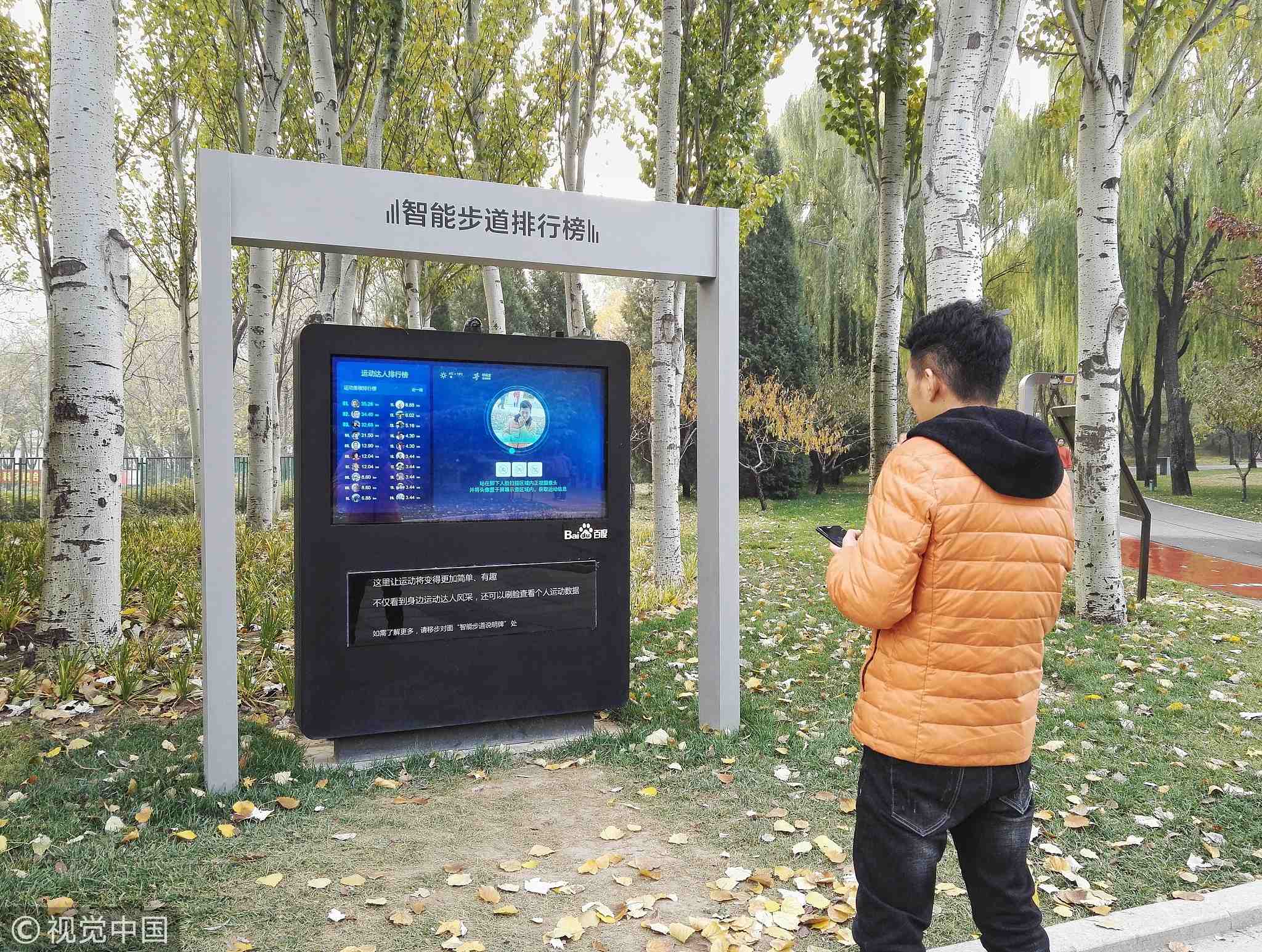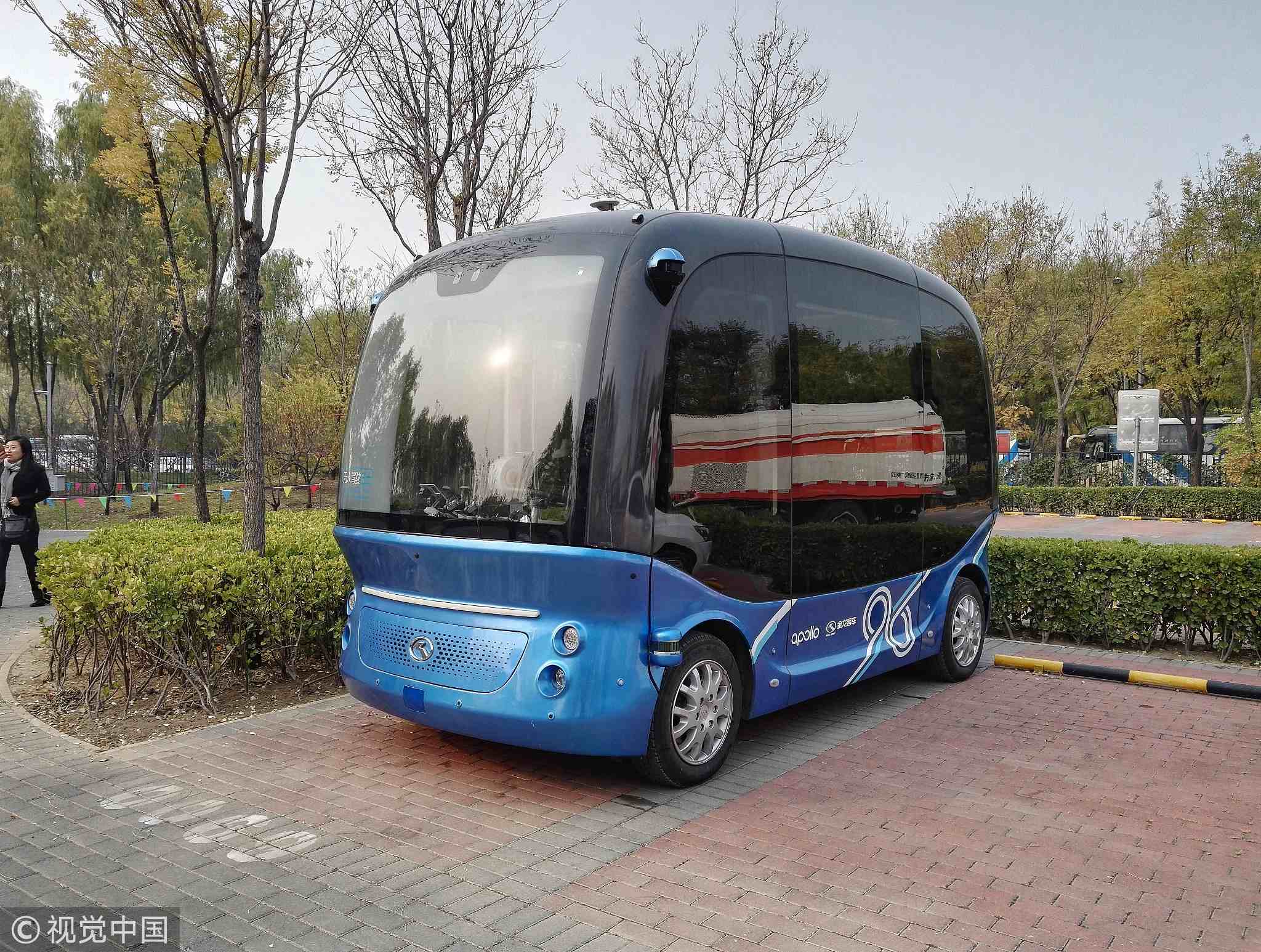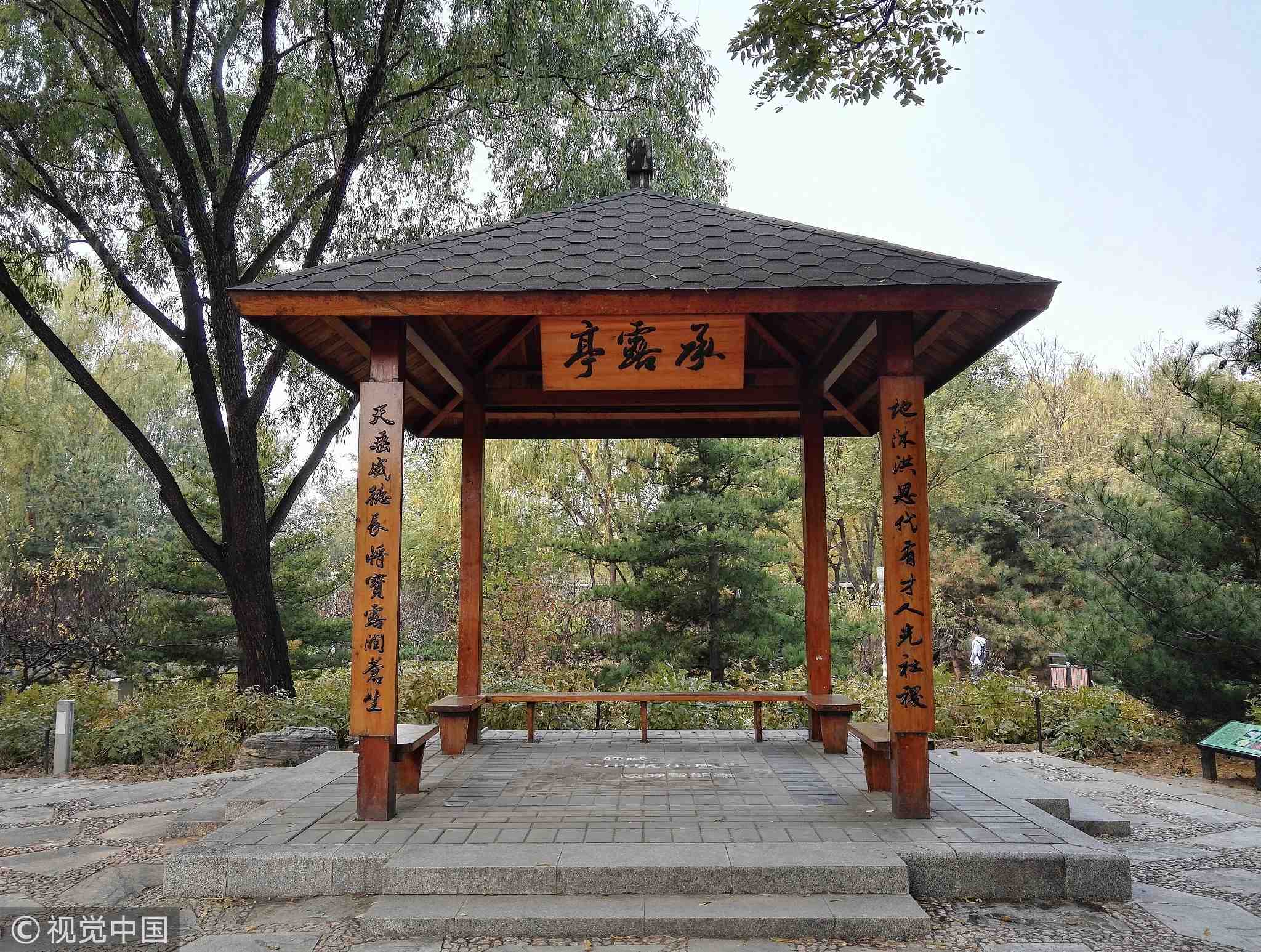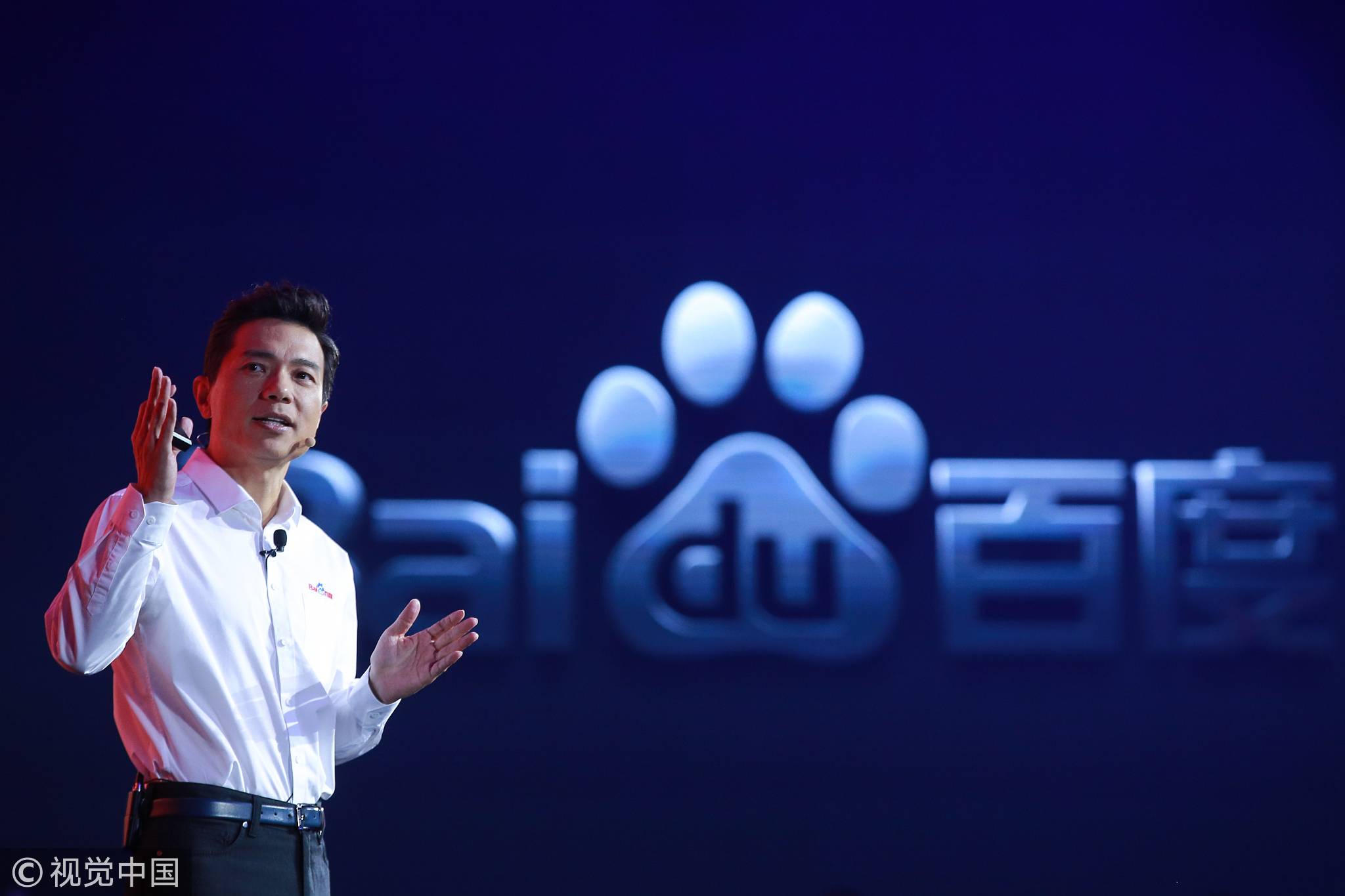
AI
16:38, 03-Nov-2018
Baidu empowers Beijing park with AI technologies
Updated
16:20, 06-Nov-2018
CGTN

Chinese search engine giant Baidu announced the opening of the world's first artificial intelligence (AI) park in Beijing on Thursday, as the company ratchets up efforts in applying AI technologies to make life and work easier and more entertaining.
Located in the city's northwest Haidian District, the park has smart walkways, self-driving buses "Apollo", intelligent pavilions and augmented reality Tai Chi lessons.
The smart walkway is 860 meters long with three facial recognition cameras set up on the runway. After running, visitors can see the distance, time, average speed and calories consumption on the screen in the park by scanning their face.

After running along the smart walkway in the park, visitors can see their sport data on the roadside screen. /VCG Photo
After running along the smart walkway in the park, visitors can see their sport data on the roadside screen. /VCG Photo
As long as visitors complete registration on the park's Wechat public account, without wearing any hardware devices (smartphones or bracelets), their sport data will be recorded by facial recognition cameras when exercising on the runway.
Apollo is the world's first level 4 self-driving bus jointly developed by Baidu, Intel and Chinese bus maker King Long. Powered by electricity, it can travel for more than 100 kilometers on a single charge.

Apollo is the world's first level 4 self-driving bus jointly developed by Baidu, Intel and Chinese bus maker King Long. /VCG Photo
Apollo is the world's first level 4 self-driving bus jointly developed by Baidu, Intel and Chinese bus maker King Long. /VCG Photo
The bus, 4.3 meters long and 2 meters wide, can accommodate six to seven passengers.
"Although Apollo is an autonomous vehicle, there must be a security officer in the bus to ensure passengers' safety," a staff member told Global Times.

The intelligent pavilion is equipped with Baidu's conversational system DuerOS. /VCG Photo
The intelligent pavilion is equipped with Baidu's conversational system DuerOS. /VCG Photo
An intelligent pavilion looks no different from others, but in fact, it is equipped with the company's conversational system DuerOS, through which visitors can communicate and interact with the pavilion.
Baidu aims to build smart cities
The opening of the smart park came with Baidu's latest plan, announced Thursday at the Baidu World Technology Conference, to build smart cities.
Called "ACE", the plan aims to promote autonomous driving, connected roads and efficient cities. Beijing and Shanghai will be the program's first pilot cities, with the focus on improving urban management and upgrading industries with state-of-the-art technologies respectively, according to Baidu's chairman and CEO Robin Li.

Baidu World Technology Conference held on Thursday announced Baidu's latest plan to build smart cities. /VCG Photo
Baidu World Technology Conference held on Thursday announced Baidu's latest plan to build smart cities. /VCG Photo
"The real solution to traffic congestion will come from AI, not Internet technologies," Li said. "AI-based traffic management is more sensitive and timely, and can reduce congestion time by 30 to 40 percent, more than double that of traditional methods."
Baidu also unveiled a partnership with domestic automobile maker Hongqi to develop a near-full autonomous vehicle in 2019 and achieve mass production by the end of 2020. The company's first fully autonomous Apolong minibusses, rolled out earlier this year, are now running in over 10 locations.
(With inputs from Xinhua News Agency)

SITEMAP
Copyright © 2018 CGTN. Beijing ICP prepared NO.16065310-3
Copyright © 2018 CGTN. Beijing ICP prepared NO.16065310-3